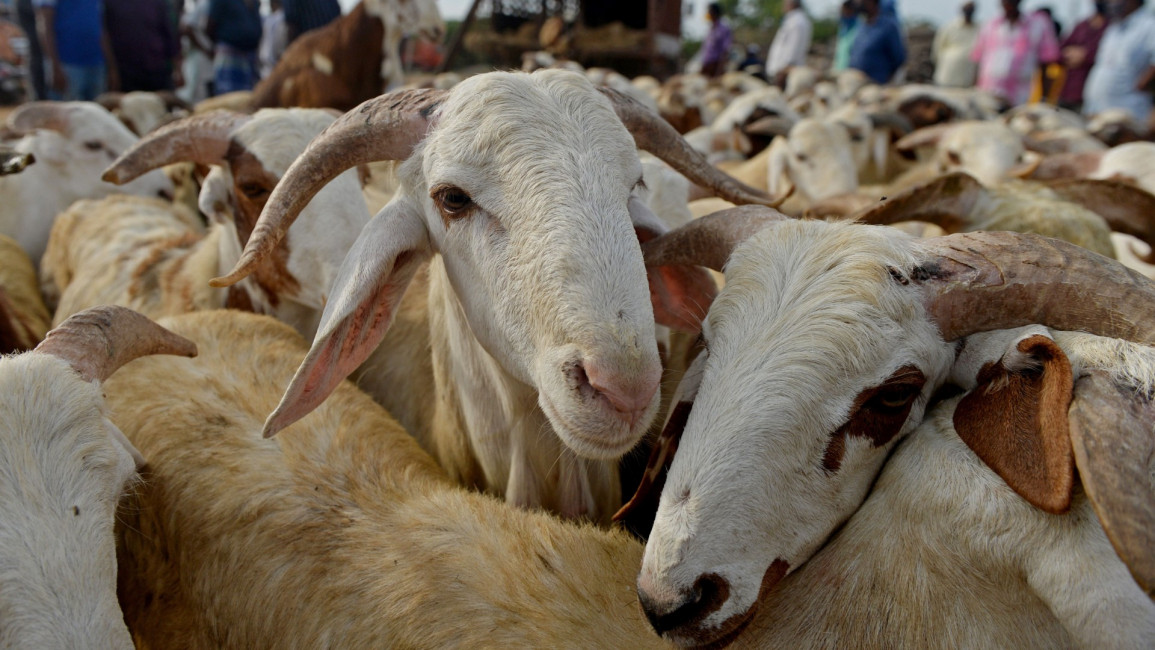Economic crisis, drought leaves sheep out of reach for Moroccan families this Eid
On the last day ahead of Eid Al-Adha, Zahra, a Moroccan woman, left an open-air cattle market in Rabat empty-handed as she lost hope of finding an affordable sheep for her five family members.
"Everything is so expensive. It's getting harder to buy even basic things, let alone a sheep," Zahra, who works as a cook, told the TNA. "This year is not meant for us to celebrate."
Zahra is one of many Moroccans who are struggling this year to celebrate Eid Al-Adha, which is expected on Thursday in Morocco. This Eid is Islam's most important holiday that marks the end of the hajj season.
During Eid, Muslims observe the tradition of slaughtering an animal, typically a mature sheep, as a sacrifice to god.
In religion, the tradition is only necessary for well-off families. Though, the social pressure and the children's excitement for celebration push many families to take loans to afford the "sacrifice."
On the other hand, Eid-Al-Adha used to represent many families as the sole annual occasion when they can afford meat since it is considered a luxury throughout the year due to soaring prices (marked at now US$9 per kilogram).
This year's economic crisis has taken a toll on the country, making it increasingly challenging even for the Moroccan middle class to afford Eid's luxury.
This year, the price of sheep ranges from 1500 Moroccan Dirhams (US$150) for a small ewe to more than 700 Moroccan Dirhams (US$700) for a large ram.
The price of a mid-sized sheep is around 3000 Moroccan Dirhams (US$300), representing a 20% increase from last year. The minimum wage in Morocco is US$290.
"This is the worst year for business. The prices are higher and people can’t afford it. May god be with us all," Bouchta, a sheep vendor, remarked to TNA, as he juggled questions from desperate buyers bargaining for lower prices.
According to the Moroccan officials' statements, the main reason behind the price spike is the increasing cost of fertilizer and animal feed, driven up by the conflict in Ukraine, which exports more than a third of the world's wheat.
An unprecedented drought has also threatened Morocco's own cereal production, worsening the market's situation.
Ahead of Eid, Morocco imported over 30,000 head of cattle to avoid shortage and "cap prices of red meat."
"People avoid foreign sheep. They just don't trust their quality. But their prices are still high. We sell them for 55 dirhams (US$5.5) for a kilogram," Bouchta said to TNA.
Instead, many Moroccans were hoping the Moroccan palace will annul Eid this year, a tradition late King Hassan II started in 1996 to relieve the people from the Eid expenses during economic hardship.
"No one will have to feel the shame of not celebrating," Saeed, a Moroccan student, said to TNA. Saeed came with a group of his friends to the market looking for budget-friendly sheep to offer to their neighbourhood’s needy.
Saeed said similar local initiatives are the only helping hand for the marginalised as the government continues to fall short of offering any significant financial support for people in need.
"As people, we only have each other," remarked Saeed, before he continued to bargain with a vendor.



